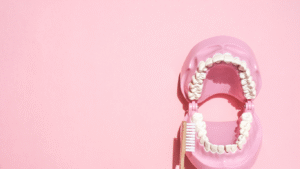Introduction
Dandruff is a common scalp condition that affects millions of people worldwide. Characterized by flaking and itching, it can be both uncomfortable and embarrassing. Fortunately, anti-dandruff shampoo offer an effective solution to manage and prevent dandruff. This comprehensive guide will delve into the benefits, ingredients, and proper use of anti-dandruff shampoos to help you achieve a healthy, flake-free scalp.
Understanding Dandruff
Causes of Dandruff
Dandruff can be caused by several factors, including:
- Dry Skin: The most common cause, leading to small, white flakes.
- Seborrheic Dermatitis: A more severe form of dandruff caused by oily, irritated skin.
- Malassezia: A yeast-like fungus that can irritate the scalp and cause excess skin cell growth.
- Allergic Reactions: Sensitivity to hair care products can result in a flaky scalp.
- Poor Hygiene: Infrequent shampooing can lead to oil and dead skin buildup.
Symptoms and Signs
The most noticeable symptoms of dandruff include:
- White or yellow flakes on the scalp, hair, and shoulders
- Itchy scalp
- Red, irritated skin
- Scalp dryness or oiliness
Types of Dandruff
Dandruff can be classified into two main types:
- Dry Dandruff: Small, white flakes caused by dry skin.
- Oily Dandruff: Larger, yellowish flakes caused by seborrheic dermatitis or fungal infections.
How Anti-Dandruff Shampoo Works
Mechanism of Action
Anti-dandruff shampoos work by addressing the root causes of dandruff. They contain active ingredients that:
- Reduce scalp oiliness
- Eliminate fungal and bacterial infections
- Exfoliate dead skin cells
- Soothe inflammation and itching
Key Ingredients and Their Functions
Anti-dandruff shampoos typically contain one or more of the following ingredients, each targeting specific dandruff causes:
- Ketoconazole: An antifungal agent that reduces yeast growth.
- Zinc Pyrithione: Combats bacteria and fungi, reducing dandruff and itching.
- Selenium Sulfide: Slows down skin cell turnover and reduces Malassezia growth.
- Salicylic Acid: Exfoliates dead skin cells, preventing buildup.
- Coal Tar: Slows down skin cell turnover, reducing flake formation.
- Tea Tree Oil: A natural antifungal and antibacterial agent.
Benefits of Using Anti-Dandruff Shampoo
Reducing Flakes
The primary benefit of anti-dandruff shampoo is the reduction of visible flakes. By targeting the underlying causes of dandruff, these shampoos help maintain a clean, flake-free scalp.
Alleviating Itching and Irritation
Ingredients like zinc pyrithione and salicylic acid soothe the scalp, alleviating itching and irritation associated with dandruff.
Improving Scalp Health
Regular use of anti-dandruff shampoo can improve overall scalp health by maintaining a balanced environment and preventing fungal and bacterial infections.
Enhancing Hair Appearance
Healthy scalp conditions contribute to healthier-looking hair. By eliminating dandruff, anti-dandruff shampoos can enhance the appearance and texture of your hair.
Choosing the Right Anti-Dandruff Shampoo
Factors to Consider
When selecting an anti-dandruff shampoo, consider the following factors:
- Type of Dandruff: Determine if your dandruff is dry or oily to choose the appropriate ingredients.
- Hair Type: Consider if your hair is oily, dry, curly, or colored.
- Sensitivity: Opt for shampoos with gentle ingredients if you have sensitive skin.
Matching Ingredients to Your Needs
- For Dry Dandruff: Look for shampoos with moisturizing ingredients like aloe vera and coconut oil.
- For Oily Dandruff: Choose products with zinc pyrithione or selenium sulfide to control oil production.
- For Sensitive Scalp: Opt for shampoos with tea tree oil or coal tar, which are gentler on the skin.
Recommendations for Different Hair Types
- Oily Hair: Nizoral Anti-Dandruff Shampoo with Ketoconazole
- Dry Hair: Neutrogena T/Gel Therapeutic Shampoo with Coal Tar
- Curly Hair: SheaMoisture African Black Soap Dandruff Control Shampoo
- Colored Hair: Head & Shoulders Clinical Strength Dandruff Defense
How to Use Anti-Dandruff Shampoo Effectively
Step-by-Step Guide
- Wet Your Hair: Ensure your hair is thoroughly wet before applying shampoo.
- Apply Shampoo: Use a quarter-sized amount of shampoo, adjusting for hair length.
- Massage into Scalp: Gently massage the shampoo into your scalp for 2-3 minutes.
- Leave it On: Allow the shampoo to sit on your scalp for 3-5 minutes to maximize its effectiveness.
- Rinse Thoroughly: Rinse your hair thoroughly to remove all shampoo residue.
- Repeat if Necessary: Depending on your hair and scalp condition, you may need to repeat the process.
Frequency of Use
For best results, use anti-dandruff shampoo 2-3 times a week. Overuse can lead to scalp dryness, while underuse may not effectively control dandruff.
Additional Tips for Best Results
- Rotate Shampoos: To prevent resistance, rotate between different anti-dandruff shampoos.
- Use Conditioner: Follow up with a conditioner to keep your hair hydrated and manageable.
- Avoid Heat Styling: Minimize the use of heat styling tools to prevent scalp irritation.
Common Myths About Anti-Dandruff Shampoos
Myth vs. Reality
- Myth: Anti-dandruff shampoos are harsh on hair. Reality: Many anti-dandruff shampoos are formulated with gentle ingredients suitable for regular use.
- Myth: Dandruff is caused by poor hygiene. Reality: Dandruff is often caused by skin conditions and fungal infections, not necessarily poor hygiene.
Scientific Explanations
Understanding the science behind dandruff and how anti-dandruff shampoos work can dispel common myths and provide a clearer picture of effective dandruff management.
DIY Anti-Dandruff Treatments
Homemade Remedies
Natural remedies can complement the use of anti-dandruff shampoos:
- Apple Cider Vinegar: Balances scalp pH and reduces fungal growth.
- Aloe Vera: Soothes irritation and moisturizes the scalp.
- Coconut Oil: Provides antifungal properties and hydration.
Natural Ingredients to Use
- Lemon Juice: Helps exfoliate dead skin cells.
- Baking Soda: Reduces fungi and soothes the scalp.
- Tea Tree Oil: Natural antifungal and antibacterial properties.
Recipes and How to Apply
- Apple Cider Vinegar Rinse: Mix equal parts apple cider vinegar and water. Apply to scalp after shampooing, leave for a few minutes, and rinse.
- Aloe Vera Gel: Apply pure aloe vera gel to the scalp, leave for 30 minutes, and rinse.
- Coconut Oil Treatment: Massage warm coconut oil into the scalp, leave overnight, and shampoo in the morning.
Anti-Dandruff Shampoo for Different Hair Types
Oily Hair
For oily hair, choose a shampoo that regulates oil production without stripping natural oils. Ingredients like zinc pyrithione and selenium sulfide are effective.
Dry Hair
Dry hair benefits from moisturizing anti-dandruff shampoos that contain ingredients like aloe vera and coconut oil.
Curly Hair
Curly hair requires gentle, sulfate-free shampoos to prevent dryness and maintain curl definition. Look for products with natural oils and botanical extracts.
Colored Hair
Colored hair needs anti-dandruff shampoos that are color-safe and gentle. Opt for products labeled safe for color-treated hair.
Side Effects and Precautions
Potential Side Effects
While anti-dandruff shampoos are generally safe, some people may experience side effects such as:
- Scalp dryness or irritation
- Hair discoloration (especially with coal tar shampoos)
- Allergic reactions to certain ingredients
Safety Precautions
- Patch Test: Perform a patch test before using a new shampoo.
- Follow Instructions: Use the shampoo as directed on the label.
- Consult a Dermatologist: If you experience persistent scalp issues, consult a dermatologist for advice.
When to Consult a Dermatologist
Seek professional help if:
- Your dandruff persists despite using anti-dandruff shampoo.
- You experience severe itching, redness, or swelling.
- You suspect an allergic reaction to the shampoo.
Combining Anti-Dandruff Shampoo with Other Hair Care Products
Conditioners and Masks
Use conditioners and masks formulated for dandruff-prone scalps to maintain moisture and scalp health.
Styling Products
Choose styling products that are non-comedogenic and free from heavy oils and silicones.
Serums and Oils
Apply lightweight serums and oils to the ends of your hair to prevent dryness without affecting the scalp.
Top-Rated Anti-Dandruff Shampoos on the Market
Product Reviews
- Nizoral A-D Anti-Dandruff Shampoo
- Pros: Effective antifungal, reduces dandruff quickly.
- Cons: Can be drying if used too frequently.
- Head & Shoulders Clinical Strength
- Pros: Strong dandruff control, soothing for the scalp.
- Cons: May not be suitable for color-treated hair.
- Neutrogena T/Gel Therapeutic Shampoo
- Pros: Long-lasting relief, suitable for various scalp conditions.
- Cons: Strong scent, can cause dryness.
- Selsun Blue Medicated Shampoo
- Pros: Effective against seborrheic dermatitis, relieves itching.
- Cons: Thick consistency, may require thorough rinsing.
Where to Buy
These shampoos are available at most drugstores, supermarkets, and online retailers like Amazon, Walmart, and Target.
Frequently Asked Questions
Can Anti-Dandruff Shampoo Be Used Daily?
While some anti-dandruff shampoos are formulated for daily use, it’s best to use them 2-3 times a week to prevent scalp dryness.
Is Anti-Dandruff Shampoo Safe for Kids?
Yes, but choose a mild, pediatric-approved formula and consult a pediatrician if unsure.
How Long Does It Take to See Results?
Most people notice a reduction in dandruff within 2-4 weeks of regular use.
Can Anti-Dandruff Shampoo Cause Hair Loss?
Some shampoos may cause temporary hair shedding, but this is usually minimal. If excessive hair loss occurs, discontinue use and consult a dermatologist.
Are There Any Natural Alternatives?
Yes, natural alternatives like apple cider vinegar rinses, coconut oil treatments, and tea tree oil can help manage dandruff.
Conclusion
Anti-dandruff shampoos offer an effective solution to manage and prevent dandruff, promoting a healthy scalp and beautiful hair. By understanding the causes of dandruff, choosing the right ingredients, and using these shampoos correctly, you can achieve and maintain a flake-free scalp. Combine these products with proper hair care practices and natural treatments for the best results.




